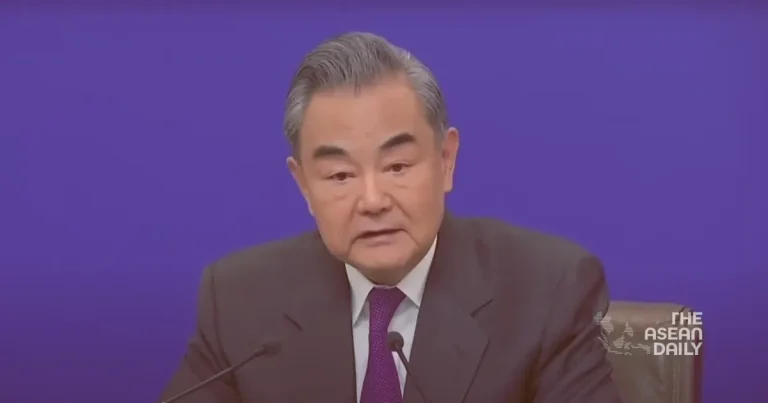17-1-2025 (BEIJING) China’s top diplomat has issued a stern call for Southeast Asian nations to intensify their fight against cybercrime and telecommunications fraud, highlighting Beijing’s mounting concerns over criminal activities along regional borders.
Foreign Minister Wang Yi, addressing a special gathering of regional envoys, emphasised the urgent need for “relevant nations” to accept greater responsibility in combating these illegal operations. The diplomatic push comes amid increasing reports of Chinese nationals falling victim to sophisticated criminal networks operating in the region.
“The safety of our citizens abroad remains paramount,” Wang stated during the diplomatic summit. “These criminal enterprises pose a significant threat not only to Chinese nationals but to citizens across the entire region.”

The diplomatic offensive follows a string of high-profile cases, including the recent disappearance of Chinese actor Wang Xing near the Thai-Myanmar border. The incident, which garnered substantial attention on Chinese social media platforms, has cast a spotlight on human trafficking concerns in the area.
According to official figures, Myanmar authorities have already transferred 31,000 suspected fraudsters to Chinese custody this year, whilst Thai officials facilitated the rescue of approximately 900 Chinese nationals from illegal operations in Myawaddy last year.
The Chinese Public Security Ministry reports that criminal syndicates have been luring victims with false promises of lucrative employment opportunities, complete with accommodation and travel arrangements, only to trap them in fraudulent operations along the border regions.
Thai authorities have responded to these concerns, with the cabinet recently convening to address the impact on the nation’s tourism sector. The country’s officials have pledged to expedite measures to preserve Thailand’s reputation as a secure destination for international visitors.
The initiative marks a significant shift in regional security cooperation, as Beijing seeks to strengthen its partnerships with ASEAN nations. With Chinese tourists historically contributing billions to regional economies before the pandemic, the stakes for effective action remain high.




